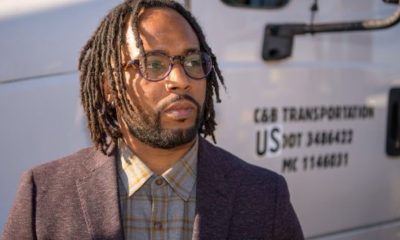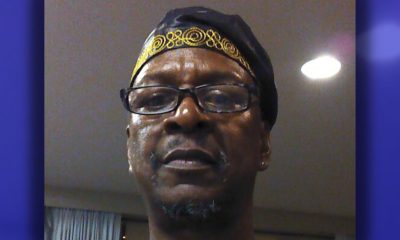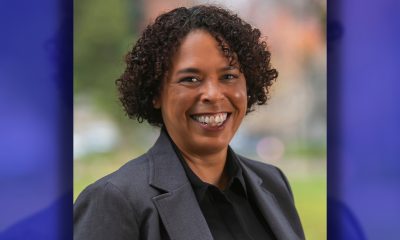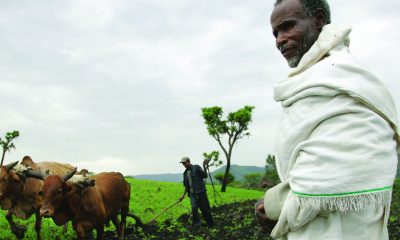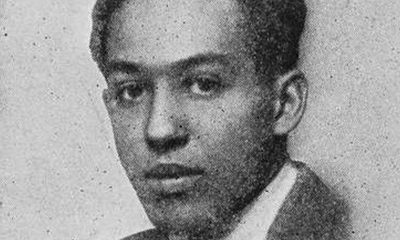Bay Area
Among the Reasons COVID-19 is Worse for Black Communities: Police Violence
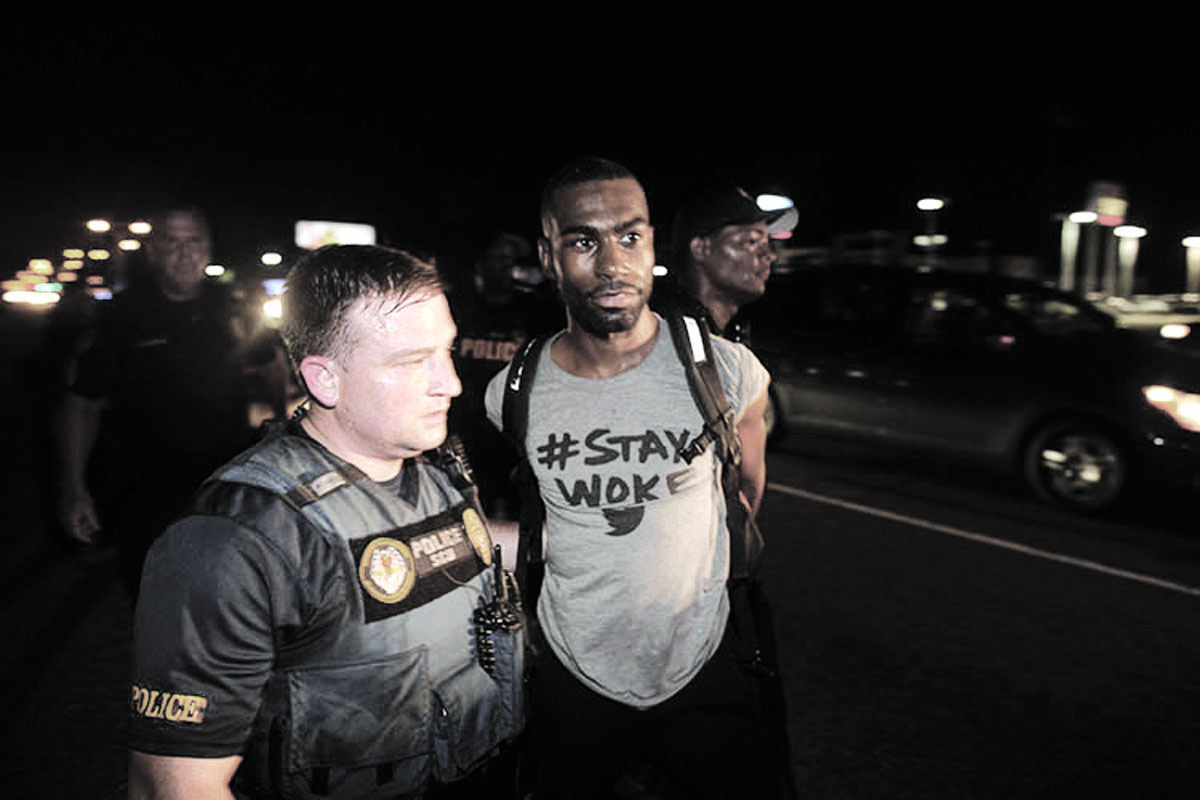
There are various reasons COVID-19 is killing Black people at six times the rate of white people, including a lack of access to health care, and poor environmental conditions in Black communities.
But one largely unexamined contributor to the disparity, according to a panel of UC Berkeley experts, is the trauma and stress caused by police violence in those communities, and the physical toll of that violence.
“There are levels of chronic stress associated with living in an environment that has more police violence, and the threat of that force on its residents,” said Denise Herd, a professor at the School of Public Health who recently examined how that stress can lead to disease in her paper “Cycles of Threat: Graham V. Connor, Police Violence and African American Health Inequities,” which will be published in an upcoming issue of the Boston University Law Review.
With the world still in the grips of the pandemic, there is no specific research relating COVID-19 cases to police violence, but Herd said the connection between the chronic stress caused by persistent police-related trauma, and diseases like asthma, diabetes, hypertension and heart disease, which has led to COVID-19 mortality, is clear.
“Those mental health issues often go untreated in African American communities and can lead to diseases that make them more compromised to COVID-19,” she added.
Another potentially complicating factor is that asking Black people, especially Black men, to wear masks, as many public health authorities are requiring, may invite unwarranted attention from police, who have falsely profiled Black men as criminals.
“It’s a corollary to the ‘hoodie’ argument from a few years ago, where it is not uncommon for racial minorities wearing hoodies to be considered a threat, while others freely wear them without fear of harassment,” said Osagie Obasogie, a Berkeley professor of bioethics.
“Everyday racism continues to be a more immediate concern to communities of color than a pandemic, so some people may decline to wear masks,” he added.
‘Two Americas, two epidemics’
Herd, who is also associate director of Berkeley’s Othering and Belonging Institute, pointed to an array of studies showing Black people are more likely to face poor treatment from law enforcement that includes being stopped, injured or even killed by police.
One study, conducted from 2001 to 2014, analyzed 683,000 injuries caused by police that prompted treatment in emergency rooms across the country. The data found that Black people were nearly five times more likely to experience police-related injuries than white people, and they also experienced a mortality rate from those injuries twice as high as white patients.
Moreover, Herd said the use of so-called Terry stops, or stop-and-frisk policies, that allow police officers to question, search or detain people they suspect are involved in criminal activity, have been used as a way to hyper-police Black communities, creating chronic stress that lowers a person’s resistance to disease.
Herd referenced data from the New York Civil Liberties Union that showed between 2004 and 2012, four million Terry stops were conducted predominantly on Black and Latino pedestrians. In 2011 alone, 90% of pedestrians stopped were either Black or Latino, and 20% of the time police used physical force.
Another study found that men who reported a high number of police stops in their lifetimes were also three times more likely to exhibit post-traumatic stress disorder symptoms and high levels of anxiety and stress.
There isn’t just one reason for the health problems in these communities, said Herd. Access to green spaces, affordable housing and other economic factors also play a role. But forms of discrimination and unfair treatment by law enforcement are linked with higher rates of disease in Black communities, she said.
In her paper, Herd pointed to research showing that in neighborhoods where pedestrians were more likely to be questioned by police, there was a prevalence of high blood pressure, diabetes, asthma and obesity; health outcomes proven to cause severe COVID-19 symptoms in patients infected with the disease.
“We don’t have all the data in yet, but it looks like it’s two Americas, two epidemics,” said Herd. “In the profile that we saw with affluent white people who had the disease first, it was because of international travel, and the cases tended to be within the older population. I don’t think that’s going to be true for the African American population. We do also see younger African American people dying.”
Wearing a face mask while Black
While wearing a face mask in public to stop the spread of COVID-19 may seem like common sense for some, for people of color, particularly Black men, wearing or not wearing a mask while out can be a double-edged sword.
Erin Kerrison, an assistant professor at Berkeley’s social welfare school who studies how law and legal institutions operate as social determinants of health, said that because of the distrust Black people have toward law enforcement, they may not wear masks in public to avoid being viewed as criminals.
“Due to the psychological harm and damage done in those stop-and-frisk encounters, and often the unwarranted harassment, there is a feeling that the police treat them as guilty until proven innocent,” Kerrison said.
For example, following the 2012 shooting and killing of Trayvon Martin, a young Black teenager walking around his Florida neighborhood, some people said the killing was justified because “he looked shady,” Kerrison said.
“What law enforcement views as a public-safety threat is deeply racialized,” said Kerrison. “So, it is a common practice for Black citizens to limit, if not altogether avoid, any sort of trigger that would lead to an encounter with a police officer.”
This Friday, Herd and Obasogie, along with other Berkeley public health experts, will host a live Berkeley Conversations video event, “Straight Talk: A Conversation about Racism, Health Inequities, and COVID-19.” It will be co-sponsored by the Othering and Belonging Institute and the School of Public Health.
Although she will not be present at the virtual event, Kerrison said she hopes the conversation extends the dialogue around the unique impact COVID-19 is having on communities of color.
“What’s important is to make sure the fullest truth does get out to as many people that will listen,” she said.
Bay Area
Vivian Coit, 98
Vivian Coit, a proud Dallas, Texas native made her way to the great state of California in 1943. She was a mother, grandmother, great-grandmother, and great-great grandmother.
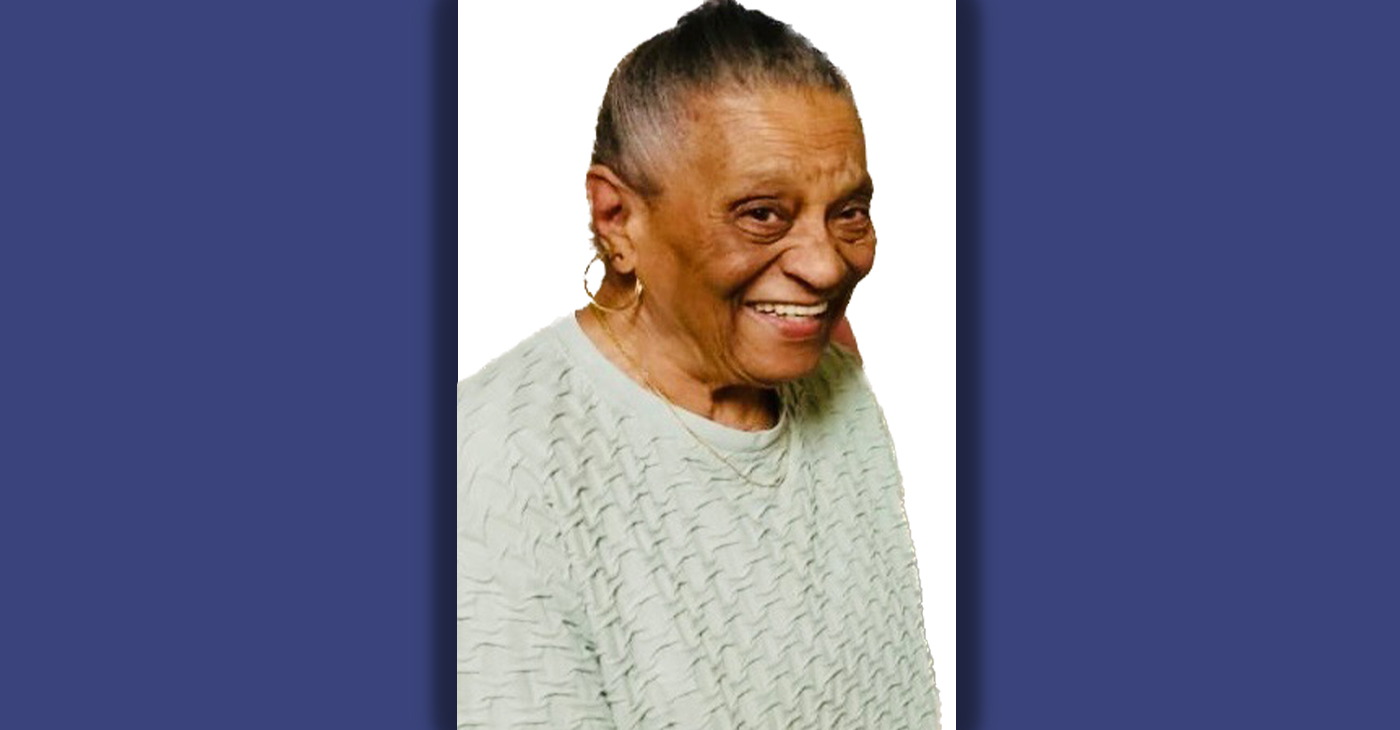
Celebrating A Life Well Lived
Sept. 15, 1925 ~ March 30, 2024
Vivian Coit, a proud Dallas, Texas native made her way to the great state of California in 1943. She was a mother, grandmother, great-grandmother, and great-great grandmother.
In her 98 years, she had various jobs – San Francisco Naval Shipyard, elevator operator, housekeeping, a salesclerk, and supervisor for the United States Postal Service. After 27 years of service with the United States Postal Service, she retired with numerous commendations. She was a lifetime member of the National Council of Negro Women. and a devoted member of the Washington/Lincoln Alumni Association of Dallas, Texas.
On April 20 at 10:00 a.m., a life well-lived will be celebrated at Beebe Memorial Cathedral CME Church, 3900 Telegraph Ave., Oakland, CA under the leadership of Rev. Antoine Shyne.
Bay Area
Rich Lyons, Longtime Campus Business, Innovation Leader, Will Be UC Berkeley’s Next Chancellor
Rich Lyons, an established economist, former dean of the Haas School of Business and the campus’s current leader for innovation and entrepreneurship, will become the next chancellor at the University of California, Berkeley, the UC Board of Regents announced on April 10.
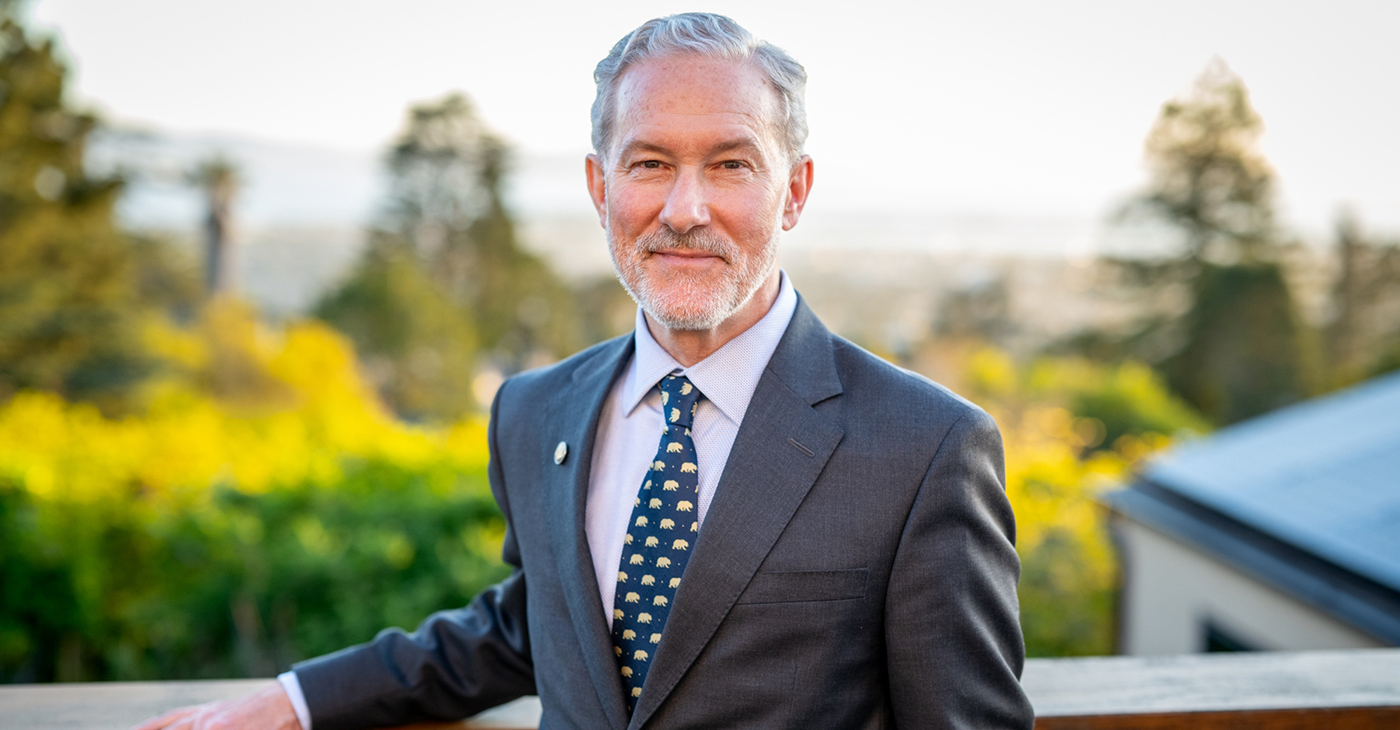
By Jason Pohl
Rich Lyons, an established economist, former dean of the Haas School of Business and the campus’s current leader for innovation and entrepreneurship, will become the next chancellor at the University of California, Berkeley, the UC Board of Regents announced on April 10.
The board’s unanimous confirmation makes Lyons, 63, the first UC Berkeley undergraduate alumnus since 1930 to become the campus’s top leader. In an interview this week, Lyons said he credits his Berkeley roots and his campus mentors with encouraging him to ask big questions, advance institutional culture and enhance public education — all priorities of his for the years to come.
Lyons, who will be Berkeley’s 12th chancellor, will succeed Chancellor Carol Christ, who announced last year that she’d step down as chancellor on July 1.
“I am both thrilled and reassured by this excellent choice. In so many ways, Rich embodies Berkeley’s very best attributes, and his dedication to the university’s public mission and values could not be stronger,” Christ said. “I am confident he will bring to the office visionary aspirations for Berkeley’s future that are informed by, and deeply respectful of, our past.”
Rising through the Berkeley ranks
Born in 1961, Lyons grew up in Los Altos in the early days of the Silicon Valley start-up boom.
He attended Berkeley, where he graduated in 1982 with a Bachelor of Science degree in business and finance. Lyons went on to earn his Ph.D. in 1987 in economics from MIT. After six years teaching at Columbia Business School, Lyons returned west, where in 1993 he joined the Berkeley faculty as a professor of economics and finance, specializing in the study of international finance and global exchange rates.
He’s remained on campus since, with one notable exception.
Starting in 2006, Lyons spent two years working at Goldman Sachs as the chief learning officer. It was a period that instilled in him an appreciation for leadership and the importance of organizational culture.
He carried those lessons with him when he returned to campus in 2008 and became the dean of the Haas School of Business.
While dean, Lyons oversaw the construction of Connie & Kevin Chou Hall, a state-of-the-art academic building that opened in 2017 and is celebrated for its sustainability. He also helped establish two new degree programs, linking the business school with both the College of Engineering and the Department of Molecular and Cell Biology.
But it was his creation of four distinct defining leadership principles that spurred a sweeping culture initiative at the school that stands out in the minds of many. Those values — question the status quo, confidence without attitude, students always, and beyond yourself — became a creed of sorts for new students and alumni alike.
Those values are important, Lyons said, because they shape and support the cohesive structure of a strong, connected community — spanning science and technology to the arts and humanities. They also convey the story about what it means to be at Berkeley and to believe in the university’s public mission.
“When we are great as educators, it’s identity-making,” Lyons said. “We’re helping students and others see identities in themselves that they couldn’t see.”
Lyons in January 2020 became Berkeley’s first-ever chief officer of innovation and entrepreneurship.
Building on his research exploring how leaders drive innovation and set behavioral norms and culture, Lyons worked to expand and champion Berkeley’s rich portfolio of innovation and entrepreneurship activities for the benefit of students, faculty, staff, startups and external partners.
It was a major commitment to thinking outside the box, he said. One need only look to the Berkeley Changemaker program that he helped launch in 2020 to see innovation and entrepreneurship in action.
The campuswide program with some 30 courses tells the story of what Berkeley is — the story that members of the Berkeley community can tell long into the future. Berkeley Changemaker started as an idea and its courses quickly became among the most popular academic offerings on campus.
“Over 500 students showed up,” he said. “Why? Because it’s a narrative. It’s not just a name. It’s not just a curriculum. It’s not just a course. It’s a way of living, and it’s a way of living that Berkeley has occupied forever. This idea that there’s got to be a better way to do this, question the status quo.”
Activism
Oakland’s ‘Green the Church,’ Others, Host a Climate Revival
On April 20, Oakland’s Green The Church California (GTC) and the Center For Food, Faith and Justice will celebrate Earth Day and present a Climate Revival event titled “Growing Healthy Communities From Soil To The Soul” at McGee Avenue Baptist Church at 1640 Stuart St, Berkeley, CA. The day will include inspiring talks, interactive workshops, networking opportunities, and a special panel on Food Sovereignty and Global Food Resilience.
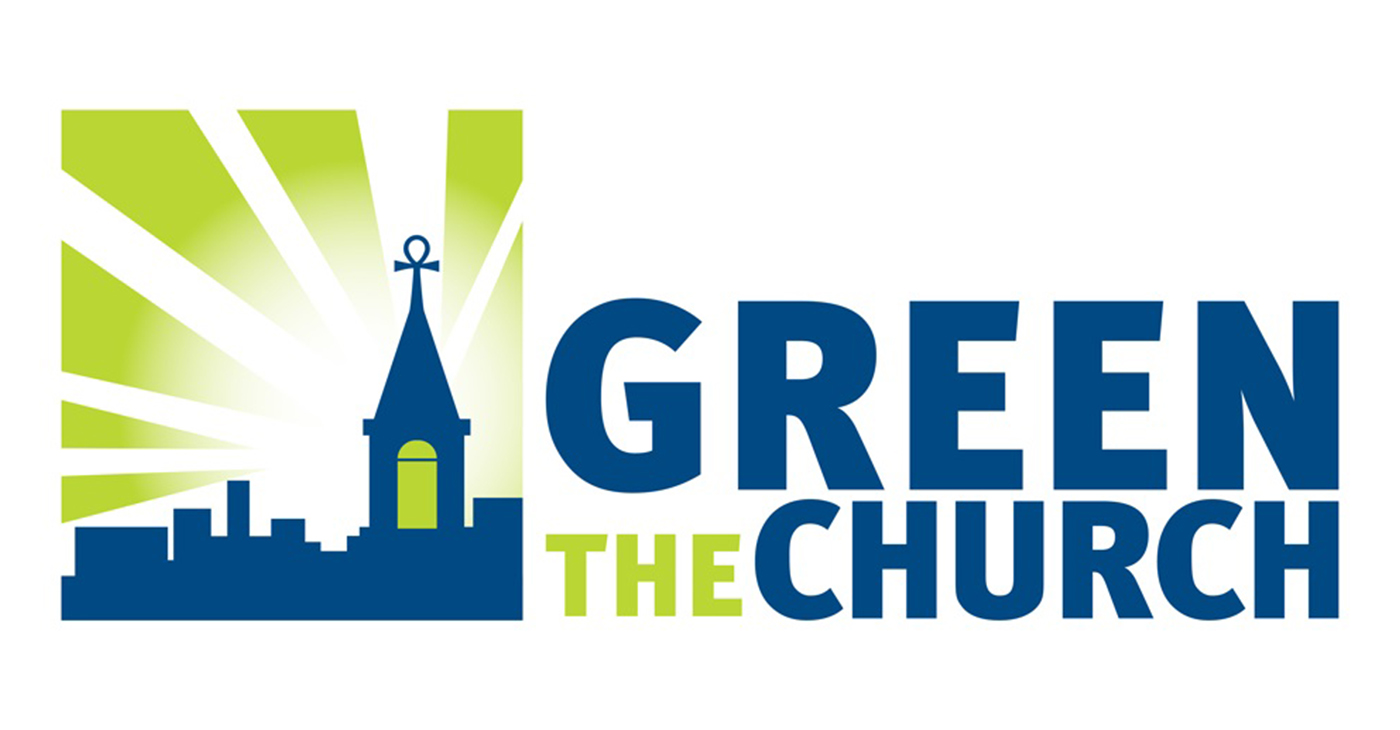
Growing Healthy Communities from Soil to the Soul in Berkeley
By Y’Anad Burrell
On April 20, Oakland’s Green The Church California (GTC) and the Center For Food, Faith and Justice will celebrate Earth Day and present a Climate Revival event titled “Growing Healthy Communities From Soil To The Soul” at McGee Avenue Baptist Church at 1640 Stuart St, Berkeley, CA,
The day will include inspiring talks, interactive workshops, networking opportunities, and a special panel on Food Sovereignty and Global Food Resilience.
The keynote speaker is Rev. Danté R. Quick, PhD, senior pastor of First Baptist Church of Lincoln Gardens in Somerset, N.J. Quick is well known in the Bay Area, having served for more than 10 years as pastor of Friendship Missionary Baptist Church in Vallejo, CA.
Green The Church, founded in 2010 by Rev. Dr. Ambrose Carroll, Sr., and headquartered in Oakland, helps galvanize Black churches and their local communities and leaders to address issues critical to populations historically disengaged from conversations around pollution and health, climate change, and sustainability and energy efficiency.
The organization collaborates with major environmental, sustainability, food security, faith, and community-based non-profit organizations, and is committed to “creation justice”—care and justice for God’s people and the planet—and building the Beloved Community.
Environmental justice has long been a pressing concern for communities of color who bear the brunt of pollution and ecological degradation. Climate change exacerbates these issues, disproportionately impacting vulnerable communities. Recognizing this urgency, Black churches across the country are taking action.
With deep roots in the African American community and its commitment to social justice, the Black Church has become an essential advocate for sustainable practices and policies.
Over the past 14 years, in a powerful collaboration with significant environmental, sustainability, food security, faith, and community-based non-profit organizations, GTC has created a cadre of Black churches engaging in the environmental justice, climate, and sustainability movement.
GTC presently works with more than 1,000 pastors and congregations across the U.S., and groups in the Bahamas, Ghana, Nigeria, and the UK, showing that we can make a difference together.
The partnership between environmental justice advocates and the Black Church extends beyond individual congregations. Green The Church provides resources and support for faith communities seeking to address climate change and promote environmental justice.
Through collaboration, initiatives such as energy efficiency programs, solar installations, and environmental education have been implemented in Black churches nationwide. These efforts reduce the carbon footprint and save money on energy bills, benefiting the congregations and their communities.
The involvement of the Black Church in the fight against climate change is not just a participation, it’s a powerful message that galvanizes action across communities.
By integrating environmental justice into their ministry, Black churches are demonstrating that addressing climate change is not only a matter of science but also of social and moral responsibility, inspiring change at a grassroots level.
For more information, go to: www.greenthechurch.org.
-

 Activism4 weeks ago
Activism4 weeks agoOakland Post: Week of March 20 – 26, 2024
-

 #NNPA BlackPress3 weeks ago
#NNPA BlackPress3 weeks agoCOMMENTARY: D.C. Crime Bill Fails to Address Root Causes of Violence and Incarceration
-

 #NNPA BlackPress3 weeks ago
#NNPA BlackPress3 weeks agoMayor, City Council President React to May 31 Closing of Birmingham-Southern College
-

 #NNPA BlackPress3 weeks ago
#NNPA BlackPress3 weeks agoCOMMENTARY: Lady Day and The Lights!
-

 #NNPA BlackPress3 weeks ago
#NNPA BlackPress3 weeks agoFrom Raids to Revelations: The Dark Turn in Sean ‘Diddy’ Combs’ Saga
-

 #NNPA BlackPress3 weeks ago
#NNPA BlackPress3 weeks agoBaltimore Key Bridge Catastrophe: A City’s Heartbreak and a Nation’s Alarm
-

 #NNPA BlackPress3 weeks ago
#NNPA BlackPress3 weeks agoBaltimore’s Key Bridge Struck by Ship, Collapses into Water
-

 Activism3 weeks ago
Activism3 weeks agoOakland Post: Week of March 27 – April 2, 2024



